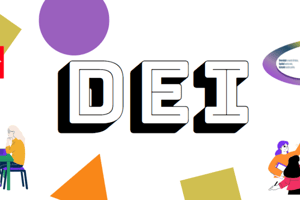Podcast
Questions and Answers
What is Paulo Freire's model of change primarily based on?
What is Paulo Freire's model of change primarily based on?
- Rejecting the need for collective agency
- Conscientization leading to struggle (correct)
- Individualism in promoting social movements
- Apathy toward social injustices
According to Graham Smith, why do people often engage in struggles?
According to Graham Smith, why do people often engage in struggles?
- To support friends and family or for pragmatic reasons (correct)
- To affirm their individual commitments to activism
- To develop a personal narrative of oppression
- To comprehend historical injustices deeply
Which concept illustrates the relationship between leadership and collective action in struggles?
Which concept illustrates the relationship between leadership and collective action in struggles?
- Emphasizing the role of passive observers
- Isolation of struggles from historical contexts
- The individualistic approach to agency
- Tension between activist leadership and collective consent (correct)
What role do activist scholars and organic intellectuals serve in society?
What role do activist scholars and organic intellectuals serve in society?
How does the narrative of struggle contribute to understanding social change?
How does the narrative of struggle contribute to understanding social change?
What is the significance of Kaupapa Māori in the context of education?
What is the significance of Kaupapa Māori in the context of education?
Which of the following represents a misconception about researching from a Māori perspective?
Which of the following represents a misconception about researching from a Māori perspective?
What drives Māori people to reclaim research according to the content?
What drives Māori people to reclaim research according to the content?
How is research characterized in the context of Māori worldview?
How is research characterized in the context of Māori worldview?
What criticism is aimed at educators focused on emancipatory schooling?
What criticism is aimed at educators focused on emancipatory schooling?
Flashcards are hidden until you start studying
Study Notes
Struggle and Consciousness
- Paulo Freire emphasizes the relationship between conscientization (awareness of social injustices) and action against injustice.
- Graham Smith's research highlights that M āori engagement in struggles often arises from solidarity rather than prior awareness of oppression or colonial history.
- M āori activism often reflects collective agency rather than purely individual consciousness.
Role of Leadership and Collective Consent
- Political leaders in movements require consent from the community to sustain action over time.
- Activist leadership and collective consent create a dynamic tension within struggles for change.
Intellectual Hegemony and Knowledge
- Revolutionary literature critiques the power of intellectuals who can influence what is deemed legitimate knowledge within the establishment.
- The struggle acts as a theoretical frame to understand agency, social change, and the interaction between academia and activism.
Kaupapa Māori as a Space of Resistance
- Kaupapa Māori emerges from M āori educational practices, asserting M āori presence in theoretical spaces, especially in research.
- The concept advocates that M āori should reclaim research to address their own questions, rather than being subject to Western paradigms.
Indigenous Research Context
- M āori possess their own methodologies and knowledge systems that should be recognized and valued rather than dominated by Western approaches.
- Research is fundamentally a human activity driven by curiosity, not limited to institutional definitions.
Importance of Hope and Imagination
- Historical narratives often overlook the significance of hope, optimism, and aspirations for a better future in education and social agency.
- M āori politics is characterized by a culture of noisy optimism and continuous imaginative engagement.
Dehumanization and the Role of Imagination
- Colonial practices aimed to dehumanize indigenous peoples, denying their agency and intellectual contributions.
- Imagination is essential for M āori to connect fragmented experiences and envisage transformative futures beyond material realities.
Margins as Sites of Identity and Culture
- The margins are seen not only as sites of struggle but also as spaces for belonging and rich cultural identities, as discussed by writers like bell hooks and Gloria Anzaldua.
- Many marginalized communities actively choose to inhabit these margins, fostering unique cultures and identities.
Research and Social Justice
- Researchers engaged in social justice typically focus on marginalized communities, revealing society's complexities and inequalities.
- Commitment to social justice may also characterize "insider" research, reflecting the experiences of those within marginalized groups.
Ethical Research Practices
- Various ethical guidelines exist to protect human subjects in research, including the Nuremberg Code and the Helsinki Declaration.
- In New Zealand, ethical research policies include consultation with M āori communities to address historical injustices and ensure cultural safety.
Recognition of M āori as Peoples
- The distinction between M āori as a marginalized population versus M āori as distinct peoples is crucial for claims of self-determination.
- Acknowledgment of M āori rights under the Treaty of Waitangi is essential for safeguarding their identity and equal citizenship.
Global Context of Research Conduct
- Research norms are influenced by a global network of researchers, requiring respect for diverse practices and the rights of Indigenous peoples.
Studying That Suits You
Use AI to generate personalized quizzes and flashcards to suit your learning preferences.



